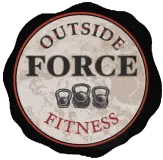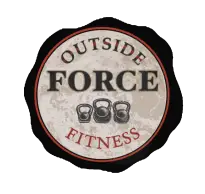There are all sorts of ways to expand your knowledge and experience as a fitness trainer. Invest in your knowledge with an additional certification in something like kettlebell training.
The Benefits of Kettlebell Training
Core strength. The basic kettlebell movements build a ton of core strength. There just isn’t a way to do them properly without activating and training your stabilizing muscles.
Coordination. Many of these key movements are multi-joint movements that require your muscles to fire off in a specific sequence. Kettlebell training improves coordination.
Balance. Most kettlebell exercises have you on your feet and tons more can be done on a single leg. You’ll come away from this certification with plenty of ideas on how to improve your client’s balance.
No more equipment necessary. The best thing is that all you need is a kettlebell. If the weather is good and you want to take someone outside for a workout, just bring the kettlebell.
Grip strength. There’s no real comfortable way to grab a kettlebell. They are usually thicker than a dumbbell and require more effort to hold onto. You’ll have awesome grip after training for a while.
Functional training. If your training style focuses on functional training, then you should absolutely get into kettlebell training. All of the core movements of kettlebell training fall under the category of functional training exercises.
You’ll Have More Modification Options
People can’t always do exercises as prescribed.
The more exercises you know, the more options you have to offer in these situations. I once had a person with a hand injury that couldn’t do chest presses with a dumbbell, but for some reason, the way a kettlebell hung over the back of their forearm, it didn’t aggravate the injury.
Or maybe the person just hates deadlifts. I’ve trained people like this. One person in particular was much more willing to do some kettlebell swings, so I let them go to town on the kettlebell swings.
It’s a Gimmick – And Gimmicks Are Fun
Kettlebell training is something different. Different and new is good to add life into a boring and repetitive training regimen. Even if your training program isn’t boring and repetitive, adding new things in and teaching new movements always leads to growth.
There seems to be an endless supply of fitness gadgets. It’s just a wave of fad after fad after fad.
Kettlebells are different, but they aren’t a fad. They’ve been around a long, long time.
Yet, after years and years of training people. They are always wanting something new. Apparently lunges day in and day out don’t satisfy something in their brains. So, give the people what they want and teach them new things with a new toy.
This one they get to swing around, maybe drop a few times, and enjoy the weird, specific type of strength it builds.
Having Additional Certifications Helps You Market Yourself
What makes a fitness trainer valuable is education and experience.
You really should get as many certifications as you can. When someone looks over your credentials, it is good to have a long list of memberships, certifications and honorable positions (whatever that is).
Most personal fitness trainer certifications require Continuing Education Units and most of the time these kettlebell certifications count towards your CEUs.
You can showcase them on a business card, flier, or your website.
Your experience in martial arts, mountaineering, rock climbing, sprinting, golf, tennis, etc. also helps add credibility to you as a fitness trainer. The knowledge gained through months and years within a sport is extremely valuable and useful. Highlight these experiences on your portfolio.
The Importance of Diversifying Your Education
I’ve learned the funniest tricks from the most unsuspecting places.
As a personal fitness trainer, I was also tricked/blackmailed into doing some group fitness classes on the side. There was a Les Mills studio as part of this big fitness facility and they wanted to send me to get certified in Body Pump.
It was something that we trainers and CrossFit coaches laughed at as being unworthy of our time.
So, I went and got the certification and started running classes. It created a great buzz with the members to get a new instructor and I was WAY out of my comfort zone. But I learned so much about the subject of cues. I also did exercises I would never have done.
I was out of my comfort zone of training.
You learn things and get results when you are out of your comfort zone. I eventually had much more respect for that workout and, while I can’t say that I really got into it, I enjoyed having to work out as part of going to work.
Eventually, I was thankful to the owner who twisted my arm to do it. Plus, another certification never hurt anyone.
Conclusion
The more you get out of your comfort zone, as a fitness trainer, the more you’ll learn.
The biggest mistake you can make is to assume that you already know it all and don’t have anything else to learn.
A certification, in and of itself, doesn’t make you a great trainer. Your ability to twist your mind around and think with the movements in new and creative ways does. With experience and education, anyone can become an amazing trainer.
I would encourage all trainers to take certification courses far outside of their comfort zones. They will feel like a total outsider and like an incompetent boob. But the learning potential is off the charts.
You’ll learn more by jumping into a field that you’re unfamiliar and uncomfortable with. At these workshops you get to associate with other trainers from other cities and learn from them. Build out your network of professionals and see what they are doing that you can learn from.
Don’t just go there to learn how to swing around a kettlebell. Go there to get some more knowledge about the fitness industry in general and how you can incorporate a whole new form of training into your gym.


